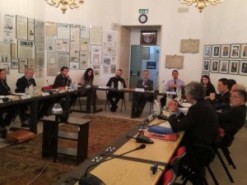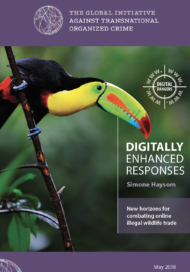Posted on 05 Nov 2015
Dinghies seized from Smugglers by the Turkish Coastguard (Credit: S Farrell)
Abajo la versión en español
First it was Lampedusa. The Italian island off the coast of Sicily where last year reporters flocked to snap pictures and relay news of thousands of refugees and economic migrants who had boarded rickety vessels from north Africa bound for Europe’s nearest point. Many did not make it; drowning in pursuit of a better future.
This year the spotlight has shifted to the Greek Islands of Lesvos and Kos, which lie just 6 and 10 kilometers from Turkey at their nearest points, respectively.
The numbers crossing into Europe are staggering. By October 2, the UNHCR had estimated the number of refugees arriving in Europe at 530,000, with Greece (395,000) and Italy (131,000) by far the biggest entry points. These numbers far eclipse the 282,000 recorded in all of 2014.
While the vast majority make it to Europe, the journey remains extremely perilous and hundreds continue to die on a monthly basis (over 2,500 have drowned so far in 2015). This was powerfully driven home when images shot across the world of Aylan Kurdi were shot across the world.
At the center of this process is a vast network of smugglers, mafiosos, low level facilitators, drivers and so forth. The smuggling network in Turkey is of course not a new phenomenon, but in recent years the sharp rise in demand for passage to Europe has turned this already multi-million Dollar industry even more lucrative, with more people wanting a share of the pie.
One of the newer individuals involved in the process is Abu Rabih, a Palestinian-Syrian who spent most of his life as a trader in Damascus before fleeing war and a poor economic climate to Turkey in 2014. For several months, he has been operating as a “collector”, an individual who is the point of contact with migrants and acts a link between them and Turkish smugglers.
I met Abu Rabih in Izmir in early October through a fixer I know. The meeting was surprising in many respects. For one, Abu Rabih looked more like a benevolent, aging professor than a node in the multi-million dollar economy that illicitly smuggles people into Europe from Turkey. Second, Abu Rabih regarded himself as a humanitarian, regularly stressing his ‘philanthropic’ credentials: including allowing the very poor to travel for free and providing room and board to customers until they carried out a successful journey. Third, and most striking, our meeting took place at a restaurant on a busy street where police occasionally walked by; on these occasions Abu Rabih continued his conversation without even a hint of nervousness.
Perhaps the public location of our discussion shouldn’t have been so surprising. After all, the neighbourhood of Basmane, a tiny area a few blocs wide surrounding one of the city’s two bus stations, is so obviously the heart of the migrant economy in Izmir – and in fact in Turkey as a whole.
Dozens of shops around the bus station sell life vests of differing levels of quality and authenticity. They are advertised on mannequins and shop fronts, incongruously next to suits and shirts. On street corners, plastic wallets, pouches, torches and whistles are sold, in addition to phones and portable phone chargers: a whole host of paraphernalia targeted at the hundreds if not thousands of transitory migrants that are packed into cheap hotels, the local mosque or in the backstreets of Basmane.
Life jaackets for sale in Izmir (Credit: Cody Punter, thebordersinbetween.com)
Abu Rabih charges US $1,200 for an adult from Izmir to Lesvos, half that for children and nothing for toddlers under 3 years old. He got into the business after friends of his asked him for advice on securing passage to Europe through trustworthy smugglers. As a favour, he contacted a known smuggler directly and following his friends’ successful migration, took on the role full time. Now he varies the smugglers through which he operates, depending on their price and integrity, he says.
Potential clients are usually referred to him by word of mouth, “reputation is key in this business,” he says, “I get a lot of business because I am honest and take care of my customers.” Being Palestinian-Syrian, a large number of his customers are Palestinian-Syrians or Lebanese-Syrians. This tends to be how it works in Basmane; we didn’t spot any Pakistani, Iranian or Afghani collectors, but there are some. Like migrants, the vast majority of collectors in Basmane are Syrian or Iraqi.
Abu Rabih says he earns around US $100-200 out of every 1,200 he charges. However, he stresses that out of this comes the money he spends on providing room and board from individuals who fail to make it across successfully, while they wait a day or two for another boat.
The rest, US $1,000 goes towards the cost of the vessel and the engine, as well as to the various middle men involved in the operation, from the bus driver who takes migrants from Izmir to the remote beaches, to the low level Turkish smugglers on the beaches and their translators. Above them are higher level Turkish Mafioso-types, who are said to have connections to local law enforcement and, through bribes, ensure these beaches are not the subject of unwanted police attention.
According to a smuggler quoted by the Washington Post, each vessel costs US $40,000, “including $7,000 for the disposable dinghy and fees to others in the smuggling chain. The entire network is ultimately controlled by two or three powerful Turks who reap most of the profits.” These are typically filled with 45 to 60 people, far exceeding the capacity of the vessel. At the lower number, assuming they are all adults, each vessel earns the smugglers US $14,000 once the cost of the vessel is factored in. With sometimes a hundred or more vessels departing a day to Lesvos during the summer, that represents profits of over US $1.4 million for the smugglers on a daily basis. Given the numbers involved, this decades-long operation is here to stay.
This will also be the case so long as Turkish authorities continue to turn a blind eye to the flow of migrants from its borders. Although there was a brief crackdown in Bodrum following news of Aylan Kurdi’s death, with an unnamed smuggler reportedly apprehended by Turkish security in early September, little appears to have been done in terms of substantive counter trafficking. There seems to be little domestic appetite for authorities to do more to prevent large numbers of migrants (there are over 2 million Syrian refugees in the country, for instance) traveling to Europe. Indeed, many Turks I’ve spoken to argue that the onus should be on Europe to ensure their transport is facilitated through legal means rather than forcing migrants to spend huge sums of cash and risk their lives to make the journey.
What is certainly clear is that while Europeans argue among themselves and with Turks, human smugglers will continue to get rich.
Migrants on the beach at Lesvos waiting to make the crossing (Credit: S.Farrell)
Los traficantes de Lesbos
Botes inflables incautados de traficantes por la Guardia Costera de Turquía (Crédito: S. Farrell)
Primero fue Lampedusa, la isla italiana próxima a la costa de Sicilia, en donde el año pasado se allegaban cientos de periodistas para tomar fotos e informar sobre los miles de refugiados y migrantes económicos que llegaban a la isla en embarcaciones frágiles desde el norte de África hacia el punto más cercano en Europa. Muchos no pudieron lograr su objetivo y se ahogaron en su intento de encontrar un futuro mejor.
Este año, la atención se ha volcado a las islas griegas de Lesbos y Kos, a sólo 6 y 10 kilómetros del punto más cercano con Turquía respectivamente.
La cifra de personas que cruza hacia Europa es alarmante. Hacia el 2 de octubre, el Alto Comisionado de las Naciones Unidas para los Refugiados (UNHCR) estimaba en 530.000 el número de refugiados que llegan a Europa, siendo Grecia (395.000) e Italia (131.000) lejos los mayores puntos de acceso. Estos números eclipsan los 282.000 registrados en todo 2014.
Si bien la gran mayoría logra llegar a Europa, el viaje sigue siendo extremadamente peligroso y continúan registrándose cientos de muertes mensualmente (más de 2.500 personas se ahogaron en lo que va de 2015), realidad que quedó claramente demostrada con la muerte de Aylan Kurdi, cuyas imágenes fueron difundidas en todo el mundo.
En el centro de este proceso se encuentra una enorme red de traficantes, mafiosos, facilitadores, conductores y tantos otros. Claro que la red de contrabando en Turquía no es un fenómeno nuevo, pero el fuerte aumento en la demanda de los últimos años para conseguir un pasaje a Europa ha enriquecido aún más a una industria que ya era multimillonaria, y consecuentemente son más los individuos que quieren una tajada de su valor.
Abu Rabih es uno de los nuevos integrantes de esta industria, un palestino-sirio que pasó la mayor parte de su vida como comerciante en Damasco antes de huir de la guerra y la pobreza hacia Turquía en 2014. Desde hace varios meses, opera como nexo entre los migrantes y los traficantes turcos.
Una persona me facilitó un encuentro con Abu Rabih en Izmir a principios de octubre. La reunión fue sorprendente en muchos aspectos. Primero, porque Abu Rabih tiene una apariencia más bien benévola, como de un profesor retirado, y no de una persona que actúa como nodo en una economía multimillonaria que trafica personas ilegalmente desde Turquía hacia Europa. Segundo, porque Abu Rabih se considera a sí mismo como un humanitario, y resalta con frecuencia sus credenciales “filantrópicas”: deja que los más pobres viajen gratis y les provee a sus clientes de habitación y comida hasta que lleguen a salvo a destino. Tercero, y lo más impactante, porque nuestra reunión se llevó a cabo en un restaurante sobre una calle muy circulada, por la que de vez en cuando pasaba la policía, situación que no parecía incomodar a Abu Rabih.
Tal vez la elección de nuestro punto de encuentro no debería haber sido tan sorprendente. Después de todo, el barrio de Basmane, una pequeña zona de sólo algunas pocas cuadras que rodea una de las dos estaciones de autobús de la ciudad, es claramente el corazón de la economía migrante en Izmir – y de hecho de toda Turquía.
En la zona que rodea la estación, pueden verse decenas de comercios que venden chalecos salvavidas de diferentes niveles de calidad y autenticidad. Están en exhibición sobre maniquíes y afuera de las tiendas, incongruentemente junto a trajes y camisas. En las esquinas, pueden comprarse billeteras de plástico, morrales, linternas y silbatos, además de teléfonos y cargadores portátiles: toda la parafernalia orientada a los cientos, si no miles, de migrantes transitorios que son alojados en hoteles baratos, en la mezquita local o en las callejuelas de Basmane.
Chalecos salvavidas a la venta en Izmir (Crédito: Cody Punter, thebordersinbetween.com)
Abu Rabih cobra US$ 1.200 por adulto para ir desde Izmir a Lesbos, la mitad del precio para niños y nada para menores de 3 años. Ingresó en el negocio luego de que algunos amigos le pidieran recomendación sobre traficantes confiables que les faciliten la entrada a Europa. Como favor, se contactó directamente con un traficante y luego de la migración exitosa de sus amigos, comenzó a tomarlo como un trabajo a tiempo completo. Ahora dice que varía los traficantes con los que trabaja dependiendo de su precio e integridad.
Los clientes potenciales llegan a él generalmente referidos por otras personas, “la reputación es sumamente importante en este negocio”, afirma. “Yo tengo mucho trabajo porque soy honesto y cuido de mis clientes”. Al ser un palestino-sirio, gran parte de sus clientes son palestinos-sirios o libaneses-sirios. Así se suele trabajar en Basmane; no vimos ningún pakistaní, iraní o afgano que actúe como nexo, pero sabemos que hay algunos. Al igual que los migrantes, la gran mayoría de estos sujetos en Basmane son sirios o iraquíes.
Abu Rabih dice que gana entre $100 y $200 de los $1.200 que cobra, y remarca que de esa suma saca el dinero que gasta en la provisión de habitación y comida para las personas que no logran cruzar y tienen que esperar un día o dos para subirse a otro bote.
Del resto, US$1.000 son destinados para el costo de la embarcación y el motor, y para los varios intermediarios que participan en la operación, desde el chofer del autobús que lleva los migrantes desde Izmir hacia las costas remotas, hasta los pequeños traficantes turcos en las playas y sus traductores. Por encima de ellos, existen grandes traficantes turcos de estilo mafioso que, se dice, tienen contactos con la policía local y, mediante sobornos, se aseguran de que esas playas no reciban atención policial indeseada.
Según un traficante citado por el Washington Post, cada bote cuesta US$40.000, “incluyendo US$7.000 para el bote inflable descartable y los honorarios de las personas involucradas en la cadena de tráfico. La red entera está controlada básicamente por dos o tres turcos poderosos que se llevan la mayor parte de las ganancias”. En los barcos suelen ubicar entre 45 y 60 personas, excediendo enormemente su capacidad. Asumiendo que todos los pasajeros son adultos, cada barco deja una ganancia de al menos US$14.000, descontado el costo del barco. Si se tiene en cuenta que a veces son cien o más los barcos que salen por día hacia Lesbos durante el verano, estamos hablando de ganancias diarias por encima de US$1.4 millones para los traficantes. Dadas las cifras en juego, este comercio, que ya tiene varias décadas, está aquí para quedarse.
Seguirá existiendo también en tanto las autoridades turcas sigan haciendo la vista gorda sobre el flujo de migrante desde sus fronteras. Si bien se tomaron brevemente algunas medidas más estrictas en Bodrum luego de conocerse la noticia de la muerte de Aylan Kurdi – según consta, a principios de septiembre la seguridad turca arrestó a un traficante, cuyo nombre se desconoce -, parece que poco se ha hecho para contraatacar el tráfico de manera sustancial. Las autoridades parecen tener poco apetito local para esforzarse más en evitar el gran volumen de migrantes que viajan a Europa (hay más de 2 millones de refugiados sirios en el país, por ejemplo). De hecho, muchos de los turcos con los que he hablado afirman que la responsabilidad debería ser de Europa y que ésta debería asegurar que el transporte de los refugiados se realice por medios legales en vez de forzar a los migrantes a pagar semejantes sumas de dinero y arriesgar su vida para poder viajar.
Lo que es evidente es que mientras los europeos discuten entre ellos y con los turcos, el tráfico humano sigue enriqueciéndose.

Migrantes en la costa de Lesbos esperando cruzar (Crédito: S- Farrell)




